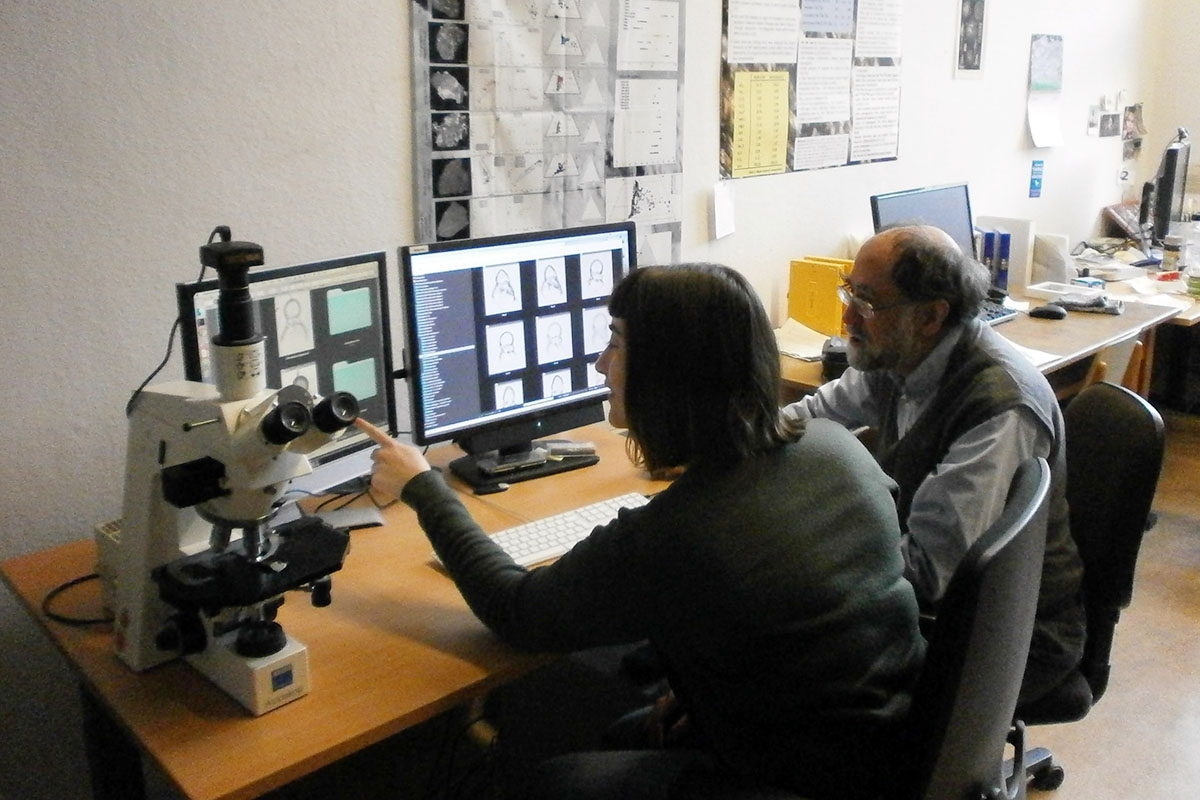Project Description
The deep-sea fossil record of marine plankton offers a unique opportunity to study evolutionary processes and their interaction with the environment over geologic time. This is due to, among other things, the extremely good preservation of species diversity, high numbers of specimens, and continuous, precisely dated geologic sections. Among the preserved fossil plankton groups, radiolarians offer the best opportunity for such research - very high (ca 400 living species), well preserved diversity; and contrasting ecologic types and niches, particularly different faunas and histories in low vs high latitudes. This radiolarian record however until recently was very poorly documented, with the majority of species not described, and the occurrences of species over time only very spottily recorded. We have been working on this problem for several years, at first in a comprehensive study of the polar faunas (Renaudie, PhD thesis) and starting recently with the tropical faunas (Sarah Trubovitz, joint Reno Nevada/MfN PhD student). Our goal is to understand fundamental long-term controls on plankton diversity and how climate change impacts plankton evolution. Methods include extensive new species descriptions, comprehensive surveys of species occurrences in sections (in part from MRC radiolarian slides), NSB database analyses and paleoceanographic literature syntheses. Results of the taxonomic and survey work also benefit our infrastructure projects (NSB and Mikrotax). This research theme has been supported by the DFG and DAAD.
Project collaborators
Sarah Trubovitz, University Nevada, Reno, USA.Paula Noble, University Nevada, Reno, USA.
Project Outputs
Foster W. J., Asatryan G., Rauzi S., Botting J., Buchwald S., Lazarus D., Isson T., Renaudie J., Kiessling W. (2023) Response of siliceous marine organisms to the Permian-Triassic climate crisis based on new findings from central Spitsbergen, Svalbard. Paleoceanography & Paleoclimatology, 38(12):e2023PA004766.
Trubovitz S., Renaudie J., Lazarus D., Noble P. (2023) Abundance does not predict extinction risk in the fossil record of marine plankton. Communications Biology.
Trubovitz, S., Lazarus, D., Renaudie, J. and Noble, P. J. (2020). Marine plankton show threshold extinction response to Neogene climate change. Nature Communications, 11:5069.
Renaudie, J. and Lazarus, D. B. (2013). On the accuracy of paleodiversity reconstructions: a case study in antarctic neogene radiolarians. Paleobiology, 39(3):491–509.
Lazarus, D.B. (2002) Environmental control of diversity, evolutionary rates and taxa longevities in Antarctic Neogene radiolaria. Paleontologica Electronica, 5:1-30.



